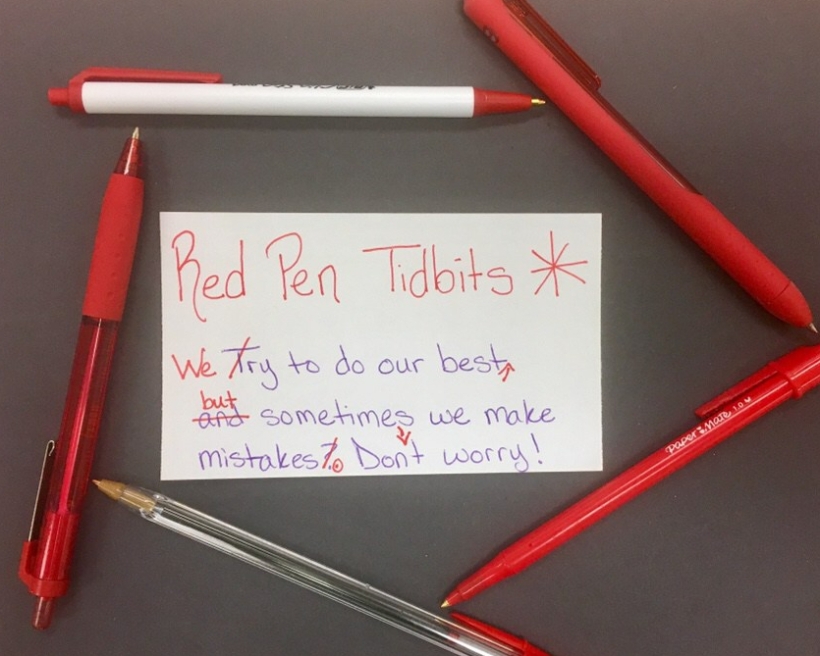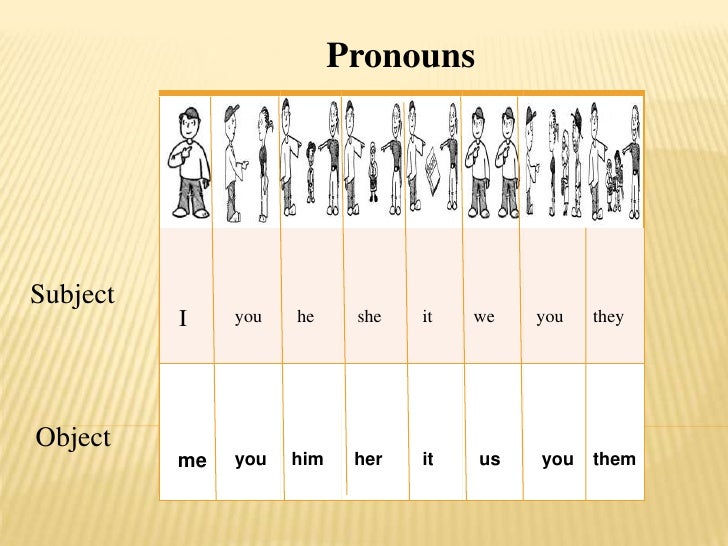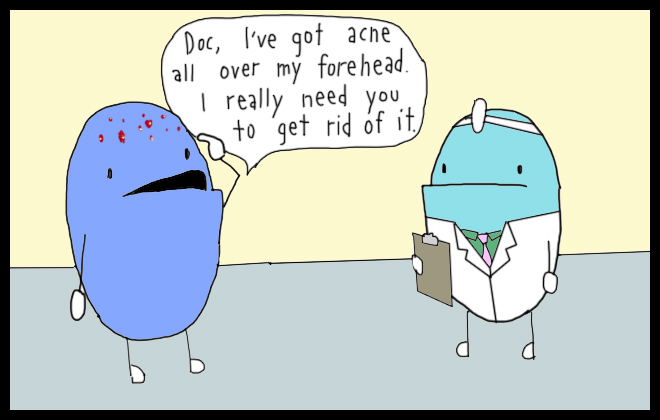Welcome back to Red Pen Tidbits! Last time we focused on the topic with the most votes (those tricky one or two word combos).
This week, we’ll discuss the second topic with the most votes: how to use me, myself, and I correctly. This post is also part of the Author Toolbox Blog Hop. Feel free to jump in with the link at the end of this post.

What exactly are we talking about here?
Let’s keep it simple: we’re talking about subjects, objects, and pronouns. We looked at the differences between these when we discussed Who vs. Whom.
Quick Recap:
Subject — does the action (Students cheer on the last day of school.)
Object — receives the action (Students asked the teacher a question.)
— could be preceded by a preposition (Students cheer for the team.)
Pronoun — generalizes a noun (They asked her a question.)
Now that we have that cleared up, let’s dive in!
I – a subject
I is always the subject in the sentence. It’s a pronoun that does the action. TIP: When dealing with subjects, ask yourself: Who or what did it?
– I asked for a slice of pie. (Who asked? I asked.)
– After I finished eating lunch, I drove to the library. (Who finished and drove? I finished, and I drove.)
– I try to read something every day. (Who tries? I try.)
I is often seen in compound subjects, which can cause a bit of confusion (but we’ll look at that issue next).
– Billy and I went to the library yesterday. (Who went? Billy and I went.)
– After lunch, Erin and I will go back to the conference. (Who will go back? Erin and I will go back.)

Me – an object
Me is always the object in the sentence (except in this sentence where it is clearly the subject). It’s a pronoun that is either the object of the verb or the object of the preposition. TIP: When dealing with objects, ask yourself: To whom or to what was it done?
– My mom gave me a present. (To whom did mom give the present? Me.)
– When they didn’t understand, the students asked me a question. (To whom did the students ask a quesiton? Me.)
– Are you talking to me? (To whom are you talking? Me.)
– I can’t believe this present is for me! (For whom is the present meant? Me.)
Using me as part of a compound subject is a common error. How many times do we break this rule when we speak? How many times do we correct others when we hear it?
Instead, me is used in a compound subject.
– Tommy and me I have a baseball game later. (Who has a baseball game later? Tommy and I.)
– Aunt Patty gave Tommy and I me a board game for Christmas. (To whom did Aunt Patty give a board game? Tommy and me.)
**Quick Trick: If you can take out the extra name(s) and the sentence makes sense, then you have the correct pronoun. You may need to change the verb conjugation a bit, but this works!
– Tommy and I have a baseball game later.
– Aunt Patty gave Tommy and me a board game for Christmas.
**Notice: The first person point of view speaker’s pronoun comes last in the compound series regardless of whether or not it is the subject or the object.

Myself — refers to the subject
Myself is used as either a reflexive or intensive pronoun. Either way, it refers back to the subject of the sentence.
Reflexive — necessary for a sentence to make sense, and reflects the action back to the subject (My sister crocheted herself a blanket.)
– I gave myself a pat on the back.
– I can walk to the bus stop by myself.
– After lunch, I’ll drive myself to the store.
**You can see that if we took out myself from the sentences above, then they wouldn’t make sense. Myself is first person, so each time it is used, it refers back to the subject I.
Intensive — unnecessary for a sentence to make sense, and intensifies a subject — often appears next to the subject it modifies (She crocheted the blanket herself.)
– I myself earned first place.
– I made the cake myself.
– After lunch, I myself got a speeding ticket.
**This time, you can see that if we took out myself from the sentences above, then they would still make sense. Myself is first person, so each time it is used, it intensifies the subject I.
A common error with myself happens when we try to use it in the place of I or me. We simply need to take a look at how it’s being used in the sentence to make sure we have the correct word.
– Please send a copy to myself me.
– You need to return the form to myself or the chapter secretary or me. (Remember that first person rule from earlier?)

Challenge
Take out your trusty Writer’s Notebook, and open to the next blank page. Try out a few sentences using Me, Myself, and I.
Then, try using them in dialogue! Let me know how it goes in the comments below!
Coming up next…
I hope you’re ready for our next Red Pen Tidbit (July 5) about Pronouns and Antecedents!

Share with me in the comments below about your most frustrating grammar/usage errors. I will gladly address them in the future!
Resources
Good luck working through me, myself, and I! If you need a bit more help after this tidbit, then please check out these other helpful sites.
- “The Basics on Subject and Object Pronouns” by Kimberly Joki
- “Me, Myself, and I – Business Grammar Rules Explained” by Mary Cullen
- “Myself: Episode #174” by Mignon Fogarty
Author Toolbox
This post is part of the #AuthorToolboxBlogHop (hosted by Raimey Gallant), which is dedicated to helping writers become stronger and more confident in their craft. Click here for more information, to continue hopping through other posts, or to join in!

Even as a high school English teacher, correct use of “who” and “whom” can sometimes get tricky. Thanks for a fantastic refresher.
LikeLiked by 1 person
Definitely! I had a tidbit on who vs. whom not too long ago. All these tricky words are a pain sometimes.
Thank you for commenting!
LikeLike
A very clear breakdown of these pronouns. Thanks!
LikeLiked by 1 person
No problem! Thank you for commenting!
LikeLike
JJ, your educational series is always well done and interesting. The examples and graphics keep it fun! Great post.
LikeLiked by 1 person
Thank you for commenting! I try to make learning interesting. 🙂
LikeLike
Oh, this is fantastic! Clear, informative – even though I know the rules, “Tommy and me” vs “Tommy and I” can still trip me up if I’m not paying attention. Can’t wait for next month. 🙂
LikeLiked by 1 person
Thank you for commenting! I still have to pause before using me or I sometimes, too… Tricky little words!
LikeLike
This is one subject I wish I’d paid more attention to in high school. I had to go back and learn it all when I started writing novels! Thanks for all the reminders.
LikeLiked by 1 person
No problem! Thank you for commenting!
LikeLiked by 1 person
Excellent review and great reminder. 🙂
Anna from elements of emaginette
LikeLiked by 1 person
Thank you!
LikeLiked by 1 person
Great tips! I love your examples 🙂
LikeLiked by 1 person
Thank you! I made them up myself! (See what I did there? 😂)
LikeLiked by 1 person
This is perhaps the best explanation of me, myself, or I that I have ever read.
LikeLiked by 1 person
Thanks! I’m always hoping what I’m saying makes sense!
LikeLike
So all we have to remember is that “I” is always the subject and “me” is always the object, and we should get them the right way around! This is one of those many writing and editing rules I “knew” but didn’t know the rationale for.
Very clever!
LikeLiked by 1 person
I’m not the best at short and sweet, but that’s the gist! It’s always interesting for me to learn the ‘why’ behind rules, so I’m hoping others feel the same way.
Thank you for commenting!
LikeLike
Love it! Thanks for listening and sharing and teaching..xoxox
LikeLiked by 1 person
Of course! Thank you for your comment!
LikeLike